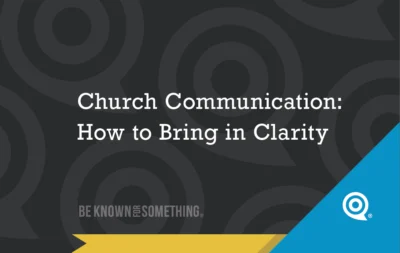Change is a good thing. Change is a bad thing.

At the end of a season, good leaders look back and realize what’s been accomplished. And quickly identify what went well and what didn’t. What needs to change to get better results.
Is your church growing? Has it plateaued? Are you making more excuses than positive steps forward? Are you ready for change?
CAUTION: Some change is good; some change is bad.
Change is a good thing: If you’re not achieving goals, you need some change. Perhaps, it’s writing down measurable goals and sharing them with accountability partners! If you continue to do everything exactly the same way, you’ll probably have very similar outcomes.
Your change needs to start with understanding your congregation and community more. They’re seeking direction and spiritual guidance. Discover specifically what they’re looking for and how they want it delivered. Don’t change the biblical message, but consider changing the methods of how you communicate and engage. This isn’t about your comfort and ease; it has to be about satisfying your audience. So start with them: talk to them, listen to what they like, and build on that. Numbers talk. If people are attending, following, and increasing in numbers, something’s working. Can’t identify what’s needed for change? Ask your audience. Success rises and falls on your audience’s satisfaction and expectations.
Perhaps you need an outside consultant to guide you in the change process (find someone who enjoys demographic research, focus group facilitation, and mystery visits).
Change is a bad thing: Many Pastors and ministry leaders get tired of things that they’re doing (even if it’s working!). Sermon series are swapped out frequently and church themes are changed when the staff gets bored. Be careful. Most people who “regularly attend” are barely coming 2-3 times a month for only a couple hours at a time. They don’t receive your communications (or pay attention to them), walk the halls regularly, or become immersed in ministry meetings like you are. They don’t remember, know, understand, or care about your vision, mission, purpose or sermon series as much as you. In fact, if you’re not sick of hearing it, the congregation doesn’t stand a chance of remembering it.
Your community that is another step away certainly won’t understand or know your messaging. So be consistent with something: a communication thread. Listen to what you’re doing well and what your congregation/community is seeking (a need or a goal). Then deliver a solution for it! Lock down a benefit-based thread that’s easy to remember. 3-5 words that will roll off your tongue and will answer the question, “Why do I go to my church?”. Then don’t change it. Add it to everything: as a tagline with your logo, as a connector for your sermon series, as keywords for your website, as a theme for social media discussion, and the list goes on and on. Stop changing your thread. Your community loves consistency as long as it’s all about them.
Want 25 Game-Changing Resolutions?
Related Posts

Church Communication: How to Bring in Clarity
In the new year, pastors often set goals. They want to grow attendance, launch new ministries, or strengthen discipleship. However,

Church Branding: Why Every Church Is Known for Something
Everyone is known for something, including your church. This is the heart of church branding. The real question isn’t whether

Church Welcome Video Tips Every Pastor Should Use
Your church welcome video is often the first message people experience before they ever step into your building. Long before

